
Joal-Fadiouth: The Shell Island of Senegal
Joal-Fadiouth is a unique and charming destination located on the Petite Côte of Senegal. The village is famous for its blend of cultures and its picturesque landscapes. What makes this place truly special is Fadiouth Island, which is entirely made of shells. As you walk around, you will see paths and buildings all created from millions of shells, giving the island a unique and serene beauty. The village is also known for its harmonious blend of Christian and Muslim communities. You can visit the mixed-religion cemetery where both Christians and Muslims are buried, showcasing the unity and peace of the local people. This makes Joal-Fadiouth a powerful symbol of coexistence. In addition to its cultural richness, Joal-Fadiouth offers stunning natural scenery. The mangrove forests and wooden bridges connecting the islands provide perfect spots for bird watching and photography. The local markets are vibrant and colorful, offering everything from fresh seafood to local crafts. Don't miss the chance to try the delicious Senegalese cuisine, especially the seafood, which is a highlight of any visit.
Local tips in Joal-Fadiouth
- Wear comfortable shoes as you will be walking on shell paths.
- Visit the mixed-religion cemetery to experience the local culture of coexistence.
- Bring a camera for capturing the unique landscapes and birdlife.
- Try the local seafood; it is fresh and delicious.
- Respect local customs and traditions, especially when visiting religious sites.
Joal-Fadiouth: The Shell Island of Senegal
Joal-Fadiouth is a unique and charming destination located on the Petite Côte of Senegal. The village is famous for its blend of cultures and its picturesque landscapes. What makes this place truly special is Fadiouth Island, which is entirely made of shells. As you walk around, you will see paths and buildings all created from millions of shells, giving the island a unique and serene beauty. The village is also known for its harmonious blend of Christian and Muslim communities. You can visit the mixed-religion cemetery where both Christians and Muslims are buried, showcasing the unity and peace of the local people. This makes Joal-Fadiouth a powerful symbol of coexistence. In addition to its cultural richness, Joal-Fadiouth offers stunning natural scenery. The mangrove forests and wooden bridges connecting the islands provide perfect spots for bird watching and photography. The local markets are vibrant and colorful, offering everything from fresh seafood to local crafts. Don't miss the chance to try the delicious Senegalese cuisine, especially the seafood, which is a highlight of any visit.
When is the best time to go to Joal-Fadiouth?
Iconic landmarks you can’t miss
Protected area In Fadiouth
Discover the breathtaking biodiversity and rich culture at the enchanting Protected Area of Fadiouth, a must-visit gem in Senegal.
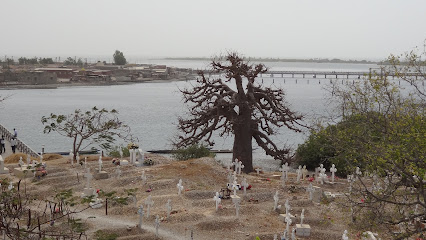
Fadiouth
Discover the unique beauty and rich cultural heritage of Fadiouth, the enchanting shell-covered island in Senegal.
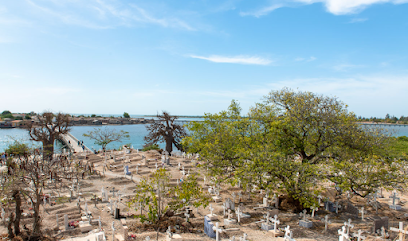
Ile de Fadiouth
Discover the serene beauty and vibrant culture of Ile de Fadiouth, a unique island paradise in Senegal known for its stunning landscapes and local traditions.
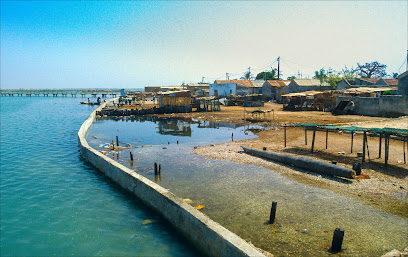
Auberge le Djembé
Experience the charm of Joal Fadiout at Auberge le Djembé, a welcoming hotel with rich local culture and comfortable accommodations.

La lagune du thiouraye
Experience the serene beauty of La Lagune du Thiouraye in Joal-Fadiout, Senegal, where relaxation meets local charm amidst stunning lagoon views.
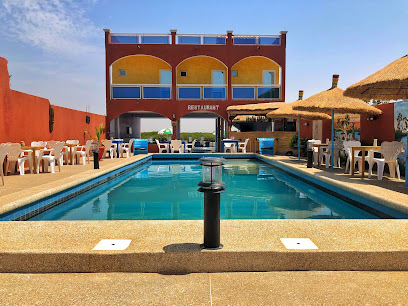
Pont de Joal Fadiouth
Explore the stunning landscapes and cultural richness of Pont de Joal Fadiouth, a premier hiking destination in Senegal's breathtaking coastal region.
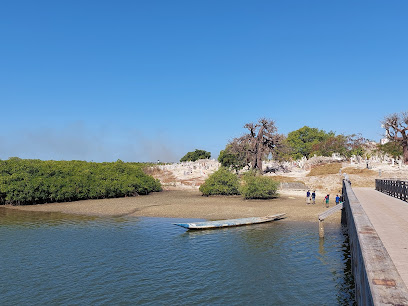
Grande Mosquée de Joal Fadiouth
Discover the stunning Grande Mosquée de Joal Fadiouth, an architectural marvel that embodies the rich spiritual and cultural heritage of Senegal.
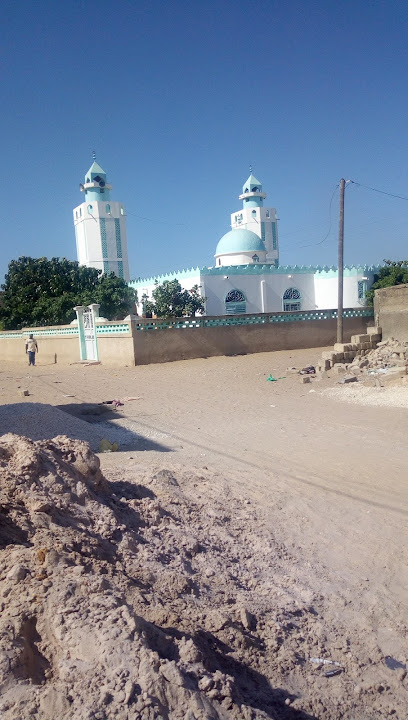
Joal fadiouth
Experience the flavors and culture of Joal Fadiouth, a hidden gem in Senegal's culinary landscape, where seafood and tradition meet stunning coastal views.
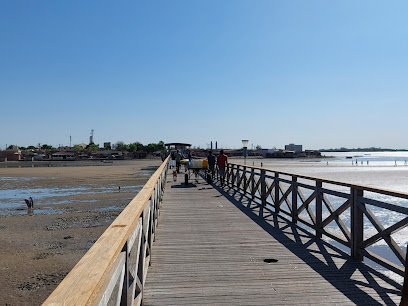
La KASBAH de l'Ile Fadiouth
Discover the cultural richness and serene beauty of La KASBAH de l'Ile Fadiouth, a charming bed and breakfast on the picturesque Ile de Fadiouth.
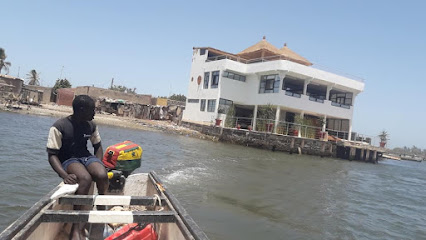
Mosquée de l'île de Fadiouth
Explore the serene beauty and cultural significance of the Mosquée de l'île de Fadiouth, a stunning mosque in Joal Fadiouth, Senegal.
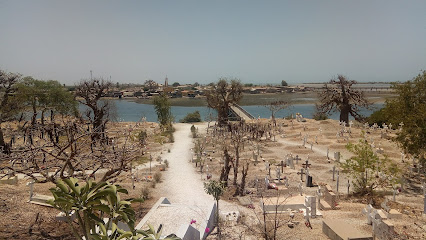
Unmissable attractions to see
Protected area In Fadiouth
Explore the enchanting landscapes and rich biodiversity of Fadiouth's Protected Area, a national park in Senegal offering unforgettable experiences in nature.
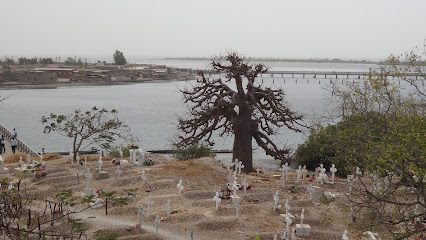
Pont de Joal Fadiouth
Explore the breathtaking hiking trails and serene natural beauty of Pont de Joal Fadiouth, a hidden gem in Senegal's stunning coastal landscape.
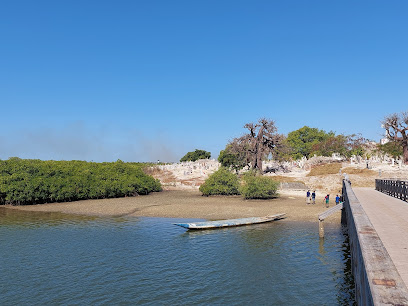
Bouba Nouvelles Aventures
Experience the breathtaking beauty and rich culture of Fimela at Bouba Nouvelles Aventures, a must-visit tourist attraction in Senegal.
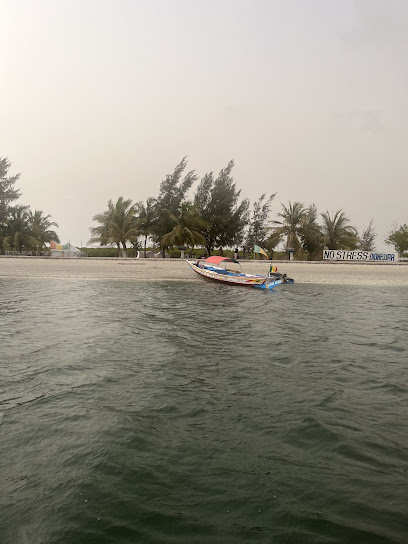
Baobab
Discover the majestic Baobab tree in Dangane, a symbol of Senegal's heritage and a picturesque natural wonder waiting to be explored.
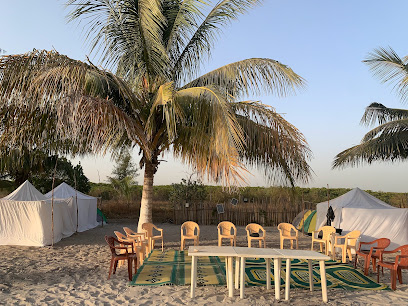
Mirador Cap Finio
Explore the natural beauty of Mirador Cap Finio, a serene preserve in Joal Fadiout, perfect for nature lovers and adventure seekers in Senegal.
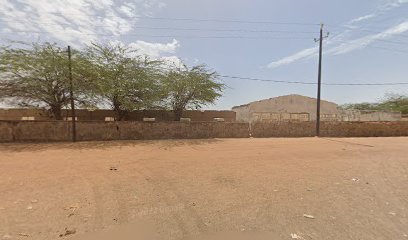
Fassanda
Experience the untamed beauty of Fassanda, a top hiking destination in Senegal, where nature and culture blend seamlessly.
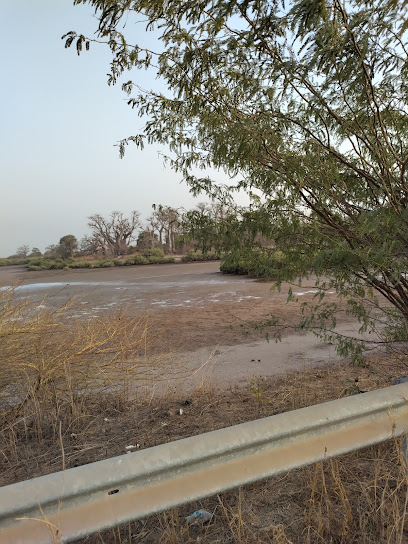
Diamalaye
Discover the serene beauty of Diamalaye, a lush garden in Joal Fadiout perfect for relaxation and nature appreciation.

Piroguisko
Explore the vibrant culture and breathtaking landscapes of Piroguisko in Dangane, Senegal – a must-visit destination for every traveler.
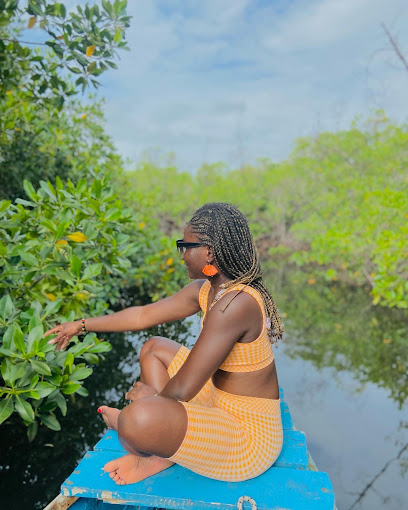
Essential places to dine
La Taverne du Pêcheur
Experience authentic Senegalese cuisine at La Taverne du Pêcheur in Joal Fadiout – where fresh seafood meets warm hospitality.
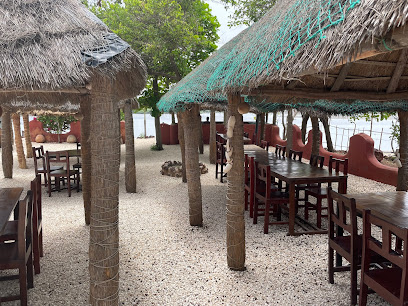
Le Finio
Discover authentic Senegalese flavors at Le Finio in Joal Fadiout – a culinary gem that celebrates local traditions.

Le Thiouraye
Discover authentic Senegalese flavors at Le Thiouraye in Joal Fadiout, where culinary tradition meets warm hospitality.
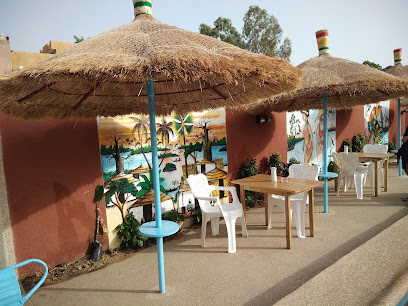
Fast_foot la pirogue
Experience authentic Senegalese cuisine at Fast Foot La Pirogue in Joal Fadiout - where fresh flavors meet coastal charm.
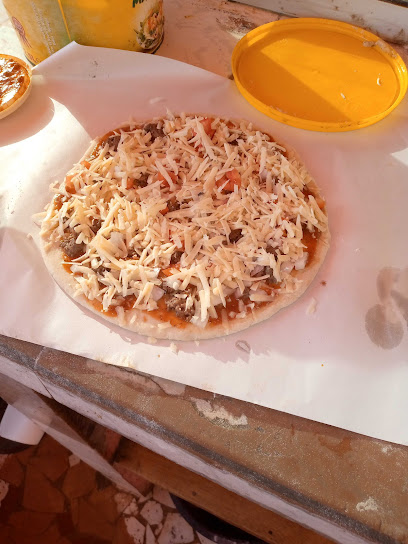
Joal fadiouth
Explore Joal Fadiouth: A Culinary Haven by the Sea with Rich Culture and Breathtaking Views
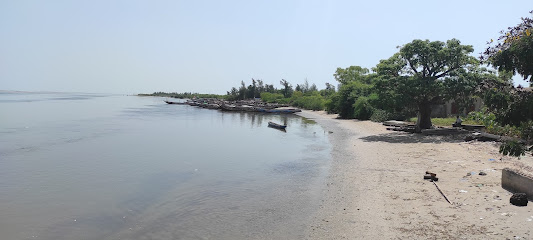
TAAN O MACK
Discover the authentic flavors of Senegal at TAAN O MACK, where traditional cuisine meets welcoming hospitality in Joal Fadiouth.
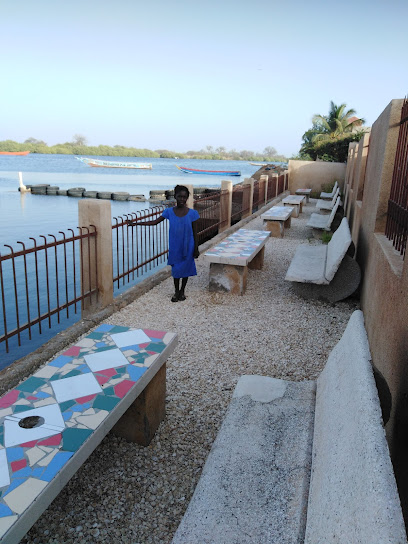
Restaurant Louisa
Experience authentic Senegalese cuisine at Restaurant Louisa in Joal Fadiout - where every dish tells a story.
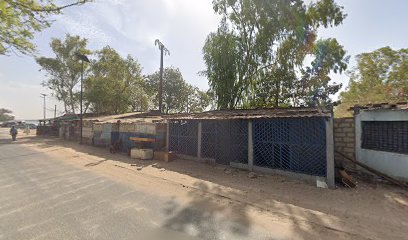
Nafio garage Joal
Discover authentic Senegalese flavors at Nafio Garage Joal in Joal Fadiout - where culinary tradition meets vibrant culture.
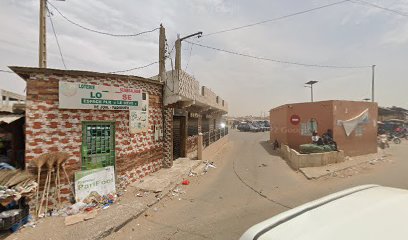
Dibiterie Khadim Bassoul
Discover authentic Senegalese flavors at Dibiterie Khadim Bassoul in Joal Fadiouth - where every dish tells a story.
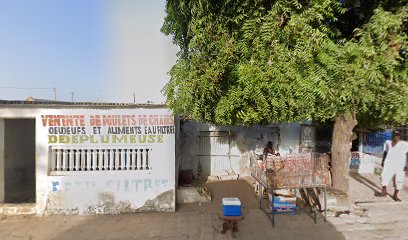
Nafio
Experience authentic Senegalese cuisine at Nafio in Joal Fadiout – where every dish tells a story of tradition and flavor.
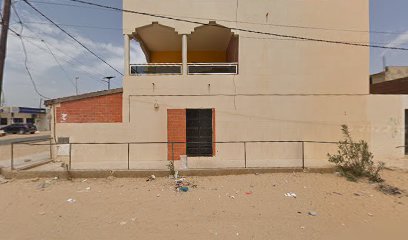
Restaurant Sope Naby
Discover authentic Senegalese flavors at Restaurant Sope Naby in Joal Fadiouth—where every meal tells a story.
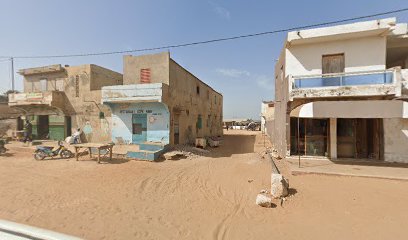
Restaurant Serigne Fallou
Experience authentic Senegalese flavors at Restaurant Serigne Fallou in Joal Fadiouth - a must-visit for food lovers seeking local culinary delights.
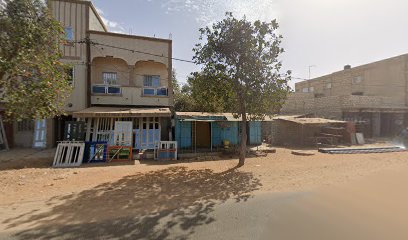
Teranga Resto Chez Raky
Experience authentic Senegalese flavors at Teranga Resto Chez Raky in Joal Fadiouth – where every dish tells a story.
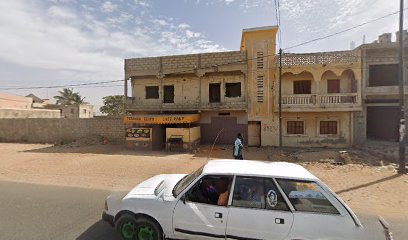
Le Murex
Experience the best of Senegalese seafood at Le Murex, where fresh oysters meet stunning ocean views in Joal Fadiout.

Restaurant Fast-Food
Experience quick bites with local flair at Joal Fadiouth's top fast-food destination, where flavor meets convenience in every meal.
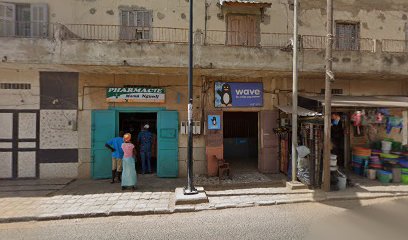
Markets, malls and hidden boutiques
Chez Antoinette
Discover authentic Senegalese flavors at Chez Antoinette, your go-to supermarket in Joal Fadiout for fresh produce and local delicacies.
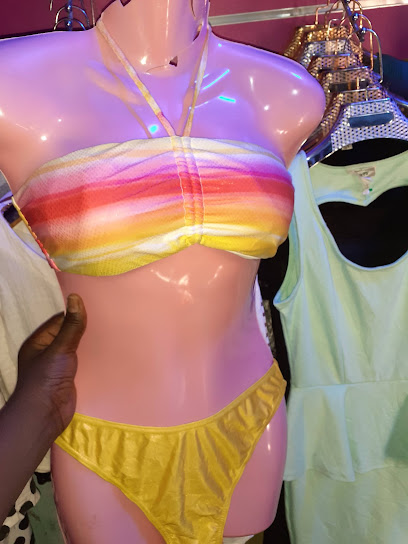
Boutique Nar
Experience local culture and convenience at Boutique Nar in Joal Fadiout, your go-to spot for unique souvenirs and local essentials.
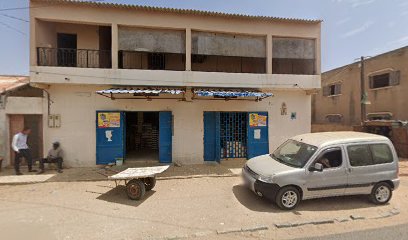
Boutique cheikh Abdou gaye
Discover unique local crafts and vibrant culture at Boutique Cheikh Abdou Gaye in Joal Fadiouth, the perfect shopping destination for tourists.
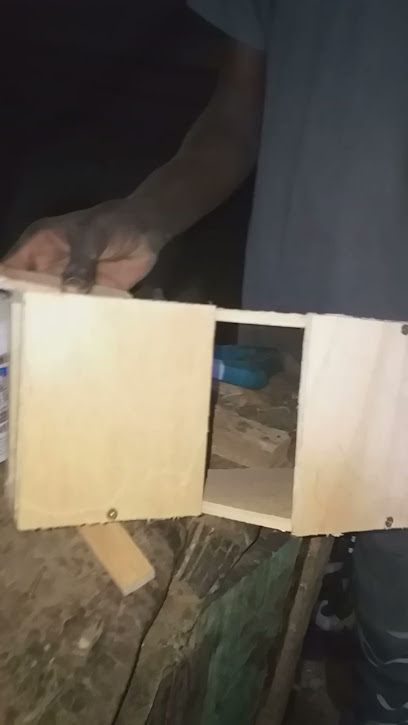
Boutique Daouda Tall
Explore Boutique Daouda Tall in Joal Fadiouth for authentic Senegalese crafts, local culture, and a warm shopping experience.

Boulangerie patisserie Sereigne Fallou Mbacke
Discover the authentic flavors of Senegal at Boulangerie Patisserie Sereigne Fallou Mbacke, a charming bakery in Joal Fadiouth known for its traditional pastries and breads.
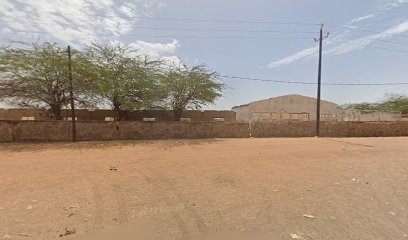
Loum & frère
Discover the best in electronics at Loum & Frère, where technology meets the vibrant culture of Joal Fadiouth, Senegal.
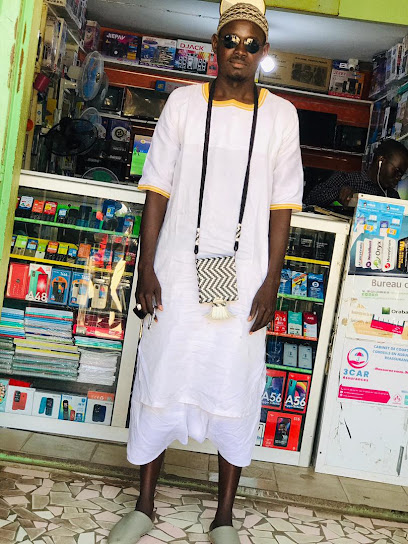
EASY Boutique
Explore the charm of Joal Fadiout at EASY Boutique, a treasure trove of local crafts and fashion that captures the essence of Senegal.

Superette Touba Kheweul
Explore local flavors and vibrant culture at Superette Touba Kheweul, the heart of Joal Fadiout's grocery scene.
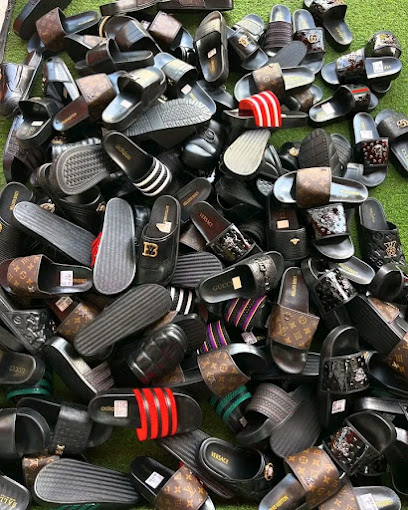
Superette Youmbale Alimentation Generale
Explore authentic Senegalese flavors at Superette Youmbale Alimentation Generale, the vibrant grocery store in Joal Fadiouth.

Yatounkar
Experience the vibrant shopping scene at Yatounkar in Joal Fadiouth, where culture, cuisine, and unique local crafts await every tourist.

Boutique Orange joal Fadiouth
Explore the latest in technology at Boutique Orange Joal Fadiouth, where local culture meets cutting-edge computer products.
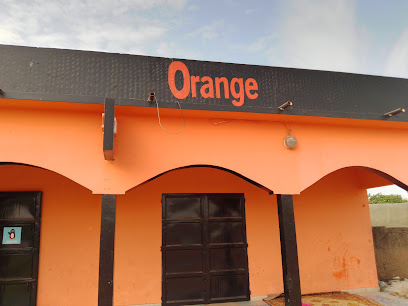
Pret'a Porter
Discover local fashion treasures at Pret'a Porter, a clothing store in Joal Fadiouth, showcasing the essence of Senegalese style and craftsmanship.
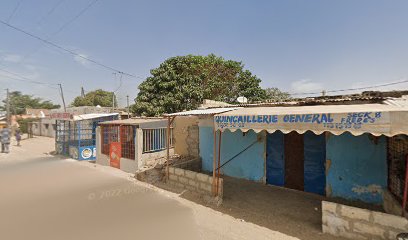
Boulangerie Ya Khady
Discover the rich flavors of Senegal at Boulangerie Ya Khady, a charming pastry shop in Joal Fadiout offering authentic baked delights.
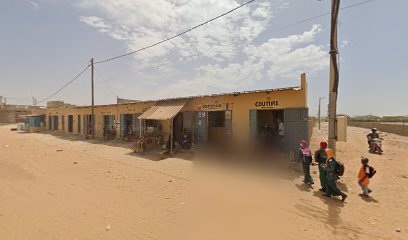
Makhou Shop
Explore the vibrant local fashion at Makhou Shop in Joal Fadiouth, where unique clothing pieces await every traveler.
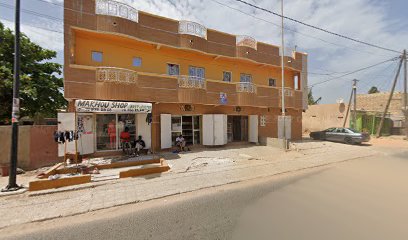
Gora Shop
Discover the vibrant culture of Senegal at Gora Shop, located in Joal Fadiouth, offering unique clothing and handcrafted accessories from local artisans.
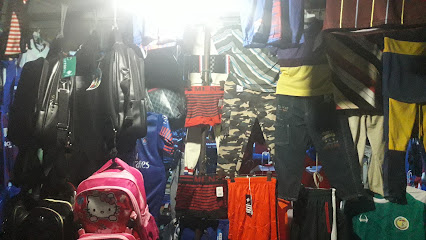
Essential bars & hidden hideouts
La Taverne du Pêcheur
Experience the authentic flavors of Senegal at La Taverne du Pêcheur, a culinary treasure in Joal Fadiout, known for its fresh seafood and welcoming atmosphere.
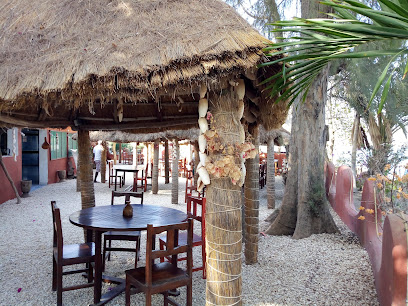
Le Finio
Discover the authentic flavors of Senegal at Le Finio in Joal Fadiout, where every meal is a culinary adventure by the sea.

Le Thiouraye
Experience the authentic flavors of Senegal at Le Thiouraye, a must-visit restaurant in Joal Fadiout, where local cuisine meets vibrant atmosphere.
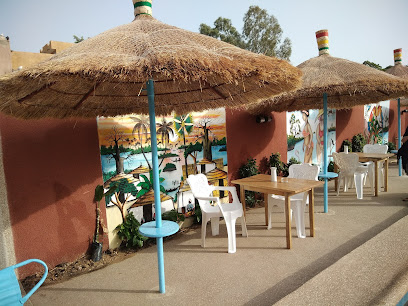
Fast_foot la pirogue
Experience the flavors of Senegal at Fast Foot La Pirogue in Joal Fadiout, where local cuisine meets warm hospitality.
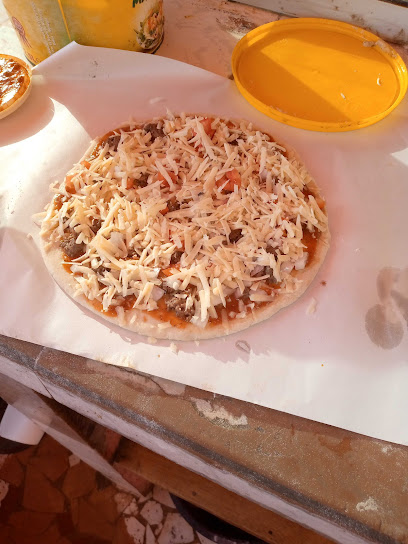
Dibiterie saff
Discover the authentic flavors of Senegal at Dibiterie Saff in Joal Fadiouth, where every meal is a celebration of local culture and cuisine.
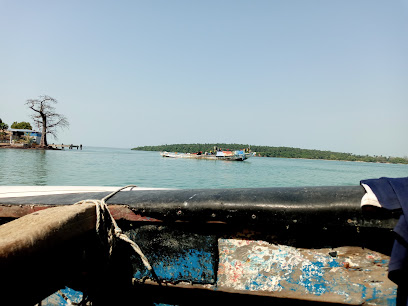
Joal fadiouth
Experience the vibrant culture and exquisite cuisine of Joal Fadiouth, a charming Senegalese destination for culinary enthusiasts.
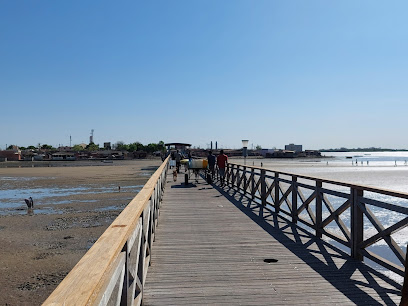
Chez Marcel Diabia ndong
Discover the authentic flavors of Senegal at Chez Marcel Diabia Ndong, a must-visit restaurant in Joal Fadiouth, perfect for food lovers and cultural enthusiasts.

La Case
Experience the vibrant atmosphere of La Case in Joal Fadiout, a local bar offering refreshing drinks and a taste of Senegalese culture.
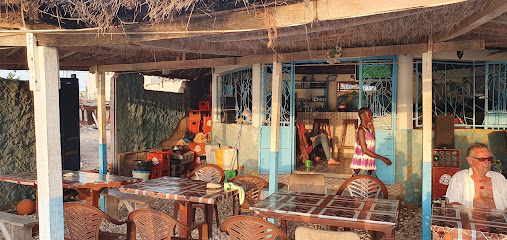
TAAN O MACK
Indulge in the rich flavors of Senegal at TAAN O MACK, a delightful restaurant in Joal Fadiouth offering traditional cuisine and a warm atmosphere.
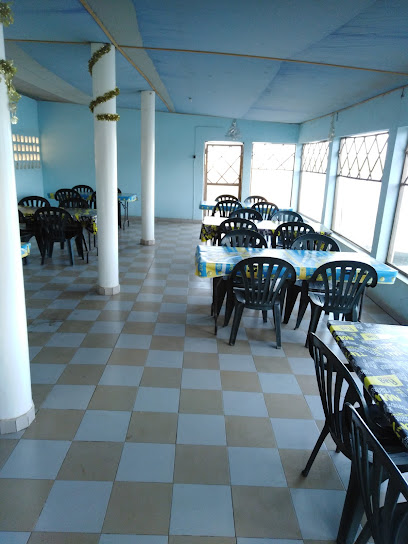
Bar Mbin Maak
Experience the vibrant atmosphere of Bar Mbin Maak in Joal Fadiout, where local flavors and warm hospitality create unforgettable moments.
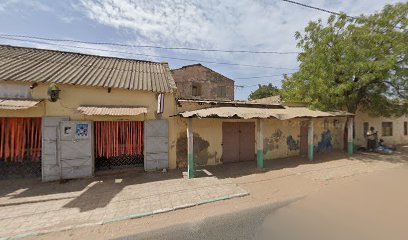
Restaurant Louisa
Discover the flavors of Senegal at Restaurant Louisa, where authentic dishes and a warm atmosphere await you in Joal Fadiout.
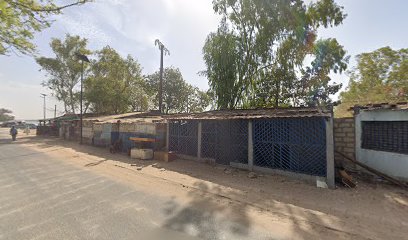
Nafio garage Joal
Experience authentic Senegalese cuisine at Nafio Garage Joal, a cozy restaurant in the heart of Joal Fadiout, perfect for food lovers.
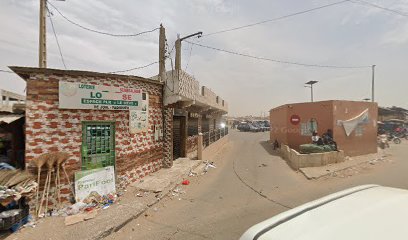
Nafio
Discover authentic Senegalese flavors at Nafio, a charming restaurant in Joal Fadiout, where every dish tells a story.
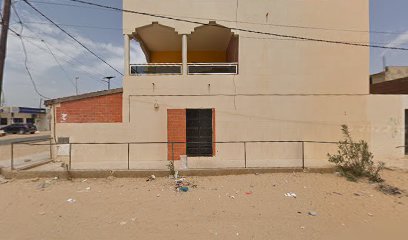
La Guinguette
Discover the authentic flavors of Senegalese cuisine at La Guinguette in Joal Fadiouth, where every meal is a celebration of local culture.

Local Phrases about Joal-Fadiouth
-
- HelloSalaam aleikum
[Sah-lahm ah-lay-koom] - GoodbyeBa ci kanam
[Bah chee kah-nahm] - YesWaaw
[Wah-ow] - NoDéedéet
[Day-dayt] - Please/You're welcomeJërejëf
[Jay-ray-jayf] - Thank youJërejëf
[Jay-ray-jayf] - Excuse me/SorryNopp
[Nohp] - How are you?Nanga def?
[Nahn-gah dehf?] - Fine. And you?Jërëjëf. Nopp?
[Jay-ray-jayf. Nohp?] - Do you speak English?Am nga tudd Angalees?
[Ahm ngah tood ahn-gah-lees?] - I don't understandNopp, ma laaj ci
[Nohp, mah laahj chee]
- HelloSalaam aleikum
-
- I'd like to see the menu, pleaseNopp, ma yomb la carte, dafa begg
[Nohp, mah yohmb lah kahrt, dah-fah behg] - I don't eat meatNopp, ma laaj juddu yapp
[Nohp, mah laahj joo-doo yahp] - Cheers!Santé!
[Sahn-tay] - I would like to pay, pleaseNopp, ma laaj degg
[Nohp, mah laahj dehg]
- I'd like to see the menu, pleaseNopp, ma yomb la carte, dafa begg
-
- Help!Ndank
[Ndahnk] - Go away!Dëgg naa!
[Dayg nah] - Call the Police!Dëgg lëkk polis!
[Dayg lek poh-lees] - Call a doctor!Dëgg tabax
[Dayg tah-bahx] - I'm lostNopp, ma nu jëkk
[Nohp, mah noo jayk] - I'm illNopp, ma laaj seen
[Nohp, mah laahj seen]
- Help!Ndank
-
- I'd like to buy...Nopp, ma laaj aax...
[Nohp, mah laahj ahk...] - I'm just lookingNopp, ma laaj seen
[Nohp, mah laahj seen] - How much is it?Lii ñuy am?
[Lee nyoo ahm?] - That's too expensiveAm nga xam neex
[Ahm ngah xahm nehx] - Can you lower the price?Am naa rëkel lu rëy
[Ahm nah ray-kel loo ray]
- I'd like to buy...Nopp, ma laaj aax...
-
- What time is it?Ñuy am?
[Nyoo ahm?] - It's one o'clockXammle bu baax
[Xahm-leh boo baahk] - Half past (10)Xammle juróom (10)
[Xahm-leh joo-room (10)] - MorningJënd
[Jaynd] - AfternoonTere
[Teh-reh] - EveningNdam
[Nah-dahm] - YesterdayAfeer
[Ah-fehr] - TodayNopp
[Nohp] - TomorrowDeedeet
[Day-dayt] - 1Benn
[Behn] - 2Jox
[Johx] - 3Talloo
[Tal-loo] - 4Nëgët
[Neh-get] - 5Juroom
[Joo-room] - 6Jegg
[Jayg] - 7Juddoo
[Joo-doo] - 8Juroom
[Joo-room] - 9Juroom
[Joo-room] - 10Juroom
[Joo-room]
- What time is it?Ñuy am?
-
- Where's a/the...?Xam nga...?
[Xahm ngah...?] - What's the address?Aduna ak jëfandikukaay
[Ah-doo-nah ahk jay-fahn-dee-koo-kahy] - Can you show me (on the map)?Am naa may ma seen (sos map)?
[Ahm nah mah mah seen (sohs map)?] - When's the next (bus)?Ba benn (bus) la?
[Bah behn (boos) lah?] - A ticket (to ....)Biléet (to ....)
[Bee-leyt (to ....)]
- Where's a/the...?Xam nga...?
History of Joal-Fadiouth
-
Joal-Fadiouth is renowned for its unique geography, particularly the island of Fadiouth, which is entirely made of shells. This unusual landscape is the result of centuries of mollusk consumption by local communities, who discarded the shells in one place, creating a solid landmass. Evidence of ancient settlements in the area suggests that the site has been inhabited for thousands of years, with shell mounds indicating a long history of human activity and adaptation to the maritime environment.
-
During the colonial era, Joal-Fadiouth became a significant location for French settlers and missionaries. The region saw the establishment of Christian missions and churches, which played a pivotal role in the spread of Christianity in Senegal. The Church of Saint Francis of Assisi in Fadiouth is a notable landmark that stands as a testament to this period. The blending of local traditions with Christian practices is evident in the unique cultural fabric of the community.
-
One of the most prominent historical figures from Joal-Fadiouth is Leopold Sedar Senghor, Senegal's first president and a renowned poet. Born in Joal in 1906, Senghor's work and political career have left an indelible mark on the country. His contributions to literature and his vision for a united and culturally rich Senegal are celebrated throughout the town. Visitors can explore his childhood home and learn about his influential role in shaping modern Senegal.
-
Joal-Fadiouth is a vibrant cultural hub, known for its rich traditions and festivals. The town hosts various events that celebrate its diverse heritage, including music, dance, and religious ceremonies. One of the most significant festivals is the annual 'Salouma,' which honors local deities and ancestors with elaborate rituals and communal feasts. These cultural practices offer a glimpse into the deep-rooted customs that continue to thrive in the community.
-
The unique ecosystem of Joal-Fadiouth, particularly its mangroves and shell islands, has garnered attention for its ecological importance. The area is a vital habitat for various species of birds and marine life. Conservation efforts have been implemented to protect these natural resources and promote sustainable tourism. The community's commitment to preserving its environment while maintaining its cultural heritage is a critical aspect of Joal-Fadiouth's identity.
Joal-Fadiouth Essentials
-
Joal-Fadiouth is located on the Petite Côte of Senegal, approximately 115 kilometers south of Dakar. The nearest international airport is Blaise Diagne International Airport in Diass, which is about 60 kilometers away. From the airport, you can take a taxi or arrange for a private transfer to Joal-Fadiouth. Public buses and minibuses (known locally as 'Ndiaga Ndiaye') also operate between Dakar and Joal, but these can be crowded and less comfortable.
-
Joal-Fadiouth is a small town, and many of its attractions are within walking distance. For longer trips, local taxis are readily available and relatively inexpensive. It is also possible to rent a bicycle for a more leisurely exploration of the area. Public transport options include minibuses and shared taxis, which are an affordable way to travel but can be less reliable and comfortable.
-
The official currency in Senegal is the West African CFA franc (XOF). Credit cards are accepted in some hotels, restaurants, and shops, particularly in more tourist-oriented areas. However, it is advisable to carry cash, especially in smaller establishments and rural areas. ATMs are available in Joal, but it is wise to withdraw sufficient cash in Dakar or Mbour before traveling to ensure you have enough funds.
-
Joal-Fadiouth is generally considered a safe destination for tourists. However, like any travel destination, it is advisable to take standard precautions. Avoid walking alone at night in unfamiliar areas and keep an eye on your belongings in crowded places. While there are no specific high-crime areas targeting tourists, it is always best to stay vigilant and aware of your surroundings.
-
In case of emergency, dial 17 for police assistance and 18 for fire services. For medical emergencies, you can call 15 for an ambulance. The local police station and medical facilities are available in Joal. It is recommended to have travel insurance that covers medical emergencies. For minor health issues, there are pharmacies in the town where you can purchase over-the-counter medications.
-
Fashion: Do dress modestly, especially when visiting religious sites. Avoid wearing revealing clothing. Religion: Do respect local customs and traditions. Always remove your shoes when entering a mosque or a private home. Public Transport: Do be respectful and give up your seat to elderly passengers. Don't eat or drink on public transport. Greetings: Do greet people with a handshake. A slight bow of the head is also a sign of respect. Eating & Drinking: Do try local delicacies and accept food offerings graciously. Don't refuse hospitality, as it is considered impolite.
-
To experience Joal-Fadiouth like a local, visit the local markets where you can buy fresh produce and traditional Senegalese goods. Engage with locals, as they are often friendly and willing to share stories about the town's history and culture. Don't miss visiting the shell island of Fadiouth, which is connected to Joal by a wooden bridge. For a unique experience, take a pirogue (traditional wooden boat) ride through the mangroves and enjoy the serene beauty of the landscape.
Nearby Cities to Joal-Fadiouth
-
Things To Do in Thiès
-
Things To Do in Bakau
-
Things To Do in Kaolack
-
Things To Do in Serekunda
-
Things To Do in Serrekunda
-
Things To Do in Banjul
-
Things To Do in Dakar
-
Things To Do in Lamin
-
Things To Do in Brikama
-
Things To Do in Gunjur
-
Things To Do in Farafenni
-
Things To Do in Soma
-
Things To Do in Saint-Louis
-
Things To Do in Janjanbureh
-
Things To Do in Canchungo




